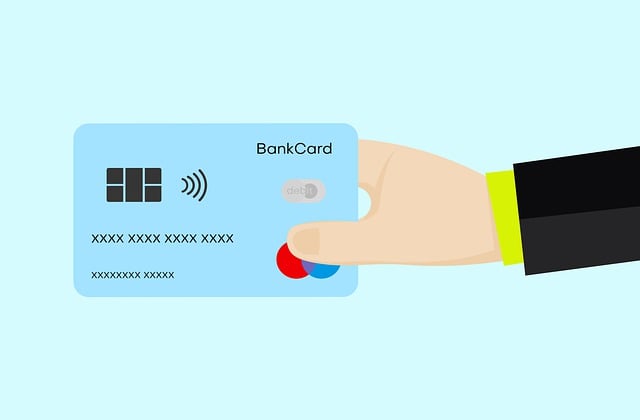Struggling tenants can find relief through tenant debt consolidation options, which merge multiple debts into a single loan with lower interest rates. Verifying eligibility for aid programs, budgeting tips, and financial education empower individuals to manage rent payments, improve credit scores, and achieve long-term financial stability, avoiding eviction.
Struggling with rent? You’re not alone. Discover effective rent relief strategies designed to provide much-needed breathing room for tenants facing financial hardships. From understanding tenant debt consolidation options and assessing eligibility for rent relief programs to building a compelling case for reduced rent through documentation, this guide equips you with the tools to navigate challenging circumstances and secure stable housing.
- Understanding Tenant Debt Consolidation Options
- Assessing Eligibility for Rent Relief Programs
- Communicating With Landlords About Financial Struggles
- Exploring Governmental Support and Subsidies
- Building a Case for Reduced Rent Through Documentation
- Long-Term Strategies for Sustainable Housing Stability
Understanding Tenant Debt Consolidation Options

For tenants facing financial strain, understanding tenant debt consolidation options is a crucial first step. This process involves merging multiple debts into a single loan with a lower interest rate and more manageable payments. It’s a popular diverse tenant debt relief option as it simplifies repayment and can free up some breathing room for struggling individuals. Local tenant debt help resources, often offered by non-profit organizations or government agencies, can provide guidance and support throughout this process.
Beyond consolidation, budgeting tips for tenant debt relief are invaluable tools. Creating a detailed budget helps tenants track expenses, identify areas for reduction, and allocate funds effectively towards debt repayment. By combining these budgeting tips for tenant debt relief with consolidation or other debt management strategies, individuals can gain control over their financial situation and work towards long-term stability.
Assessing Eligibility for Rent Relief Programs

Struggling tenants often wonder, “How do I qualify for rent relief?” Assessing eligibility is a crucial step in accessing available aid. Many rent relief programs are designed to support those facing financial hardships, such as job loss or medical emergencies. To start, tenants should review their specific program guidelines and ensure they meet the basic criteria. This includes verifying income levels, household size, and the nature of their financial struggle.
Tenant debt consolidation options can be a valuable part of the solution. By exploring budgeting tips for tenant debt relief, individuals can better manage their finances and potentially reduce their overall debt burden. Tenant financial assistance programs and education initiatives also play a role in empowering tenants to take control of their economic well-being. These resources often provide guidance on rent payment plans, financial counseling, and strategies for improving credit scores, ultimately helping tenants navigate challenging situations more effectively.
Communicating With Landlords About Financial Struggles

Struggling tenants often face a challenging situation when it comes to rent payments, but open and honest communication with landlords can be a game-changer. Many landlords are understanding and willing to work with tenants who are going through financial difficulties. The first step is to initiate a dialogue and express your concerns about making rent payments on time. You can discuss potential solutions together, such as agreeing on a payment plan or tenant debt consolidation options that can help manage your finances more effectively.
Landlords may be open to considering bad credit loan consolidation or debt help UK programs if they believe you’re committed to catching up and staying current with your rent. Additionally, tenants should take this opportunity to educate themselves about managing their money better. Tenant financial education for debt management is a valuable resource that can teach budgeting skills, helping them avoid similar situations in the future.
Exploring Governmental Support and Subsidies

Struggling tenants can find a lifeline through various governmental support and subsidies designed to alleviate financial burdens. These programs often offer rent relief strategies tailored to individual circumstances, providing much-needed assistance during challenging economic times. One effective option is tenant debt consolidation, which allows individuals to combine multiple debts into a single, more manageable loan. This approach can simplify repayment schedules and potentially reduce overall interest payments, offering tenants a chance to catch up on back rent or avoid eviction due to financial strain.
Exploring tenant debt consolidation options through governmental initiatives or private lenders is a prudent step. The right tenant loan refinancing strategy can help individuals navigate their financial challenges. Moreover, searching for tenant debt support groups can connect struggling tenants with communities offering advice and resources. These groups often provide guidance on accessing government subsidies and navigating complex financial landscapes, ultimately empowering tenants to make informed decisions regarding their rental obligations.
Building a Case for Reduced Rent Through Documentation

Struggling to pay rent can be a significant source of stress for tenants. One effective strategy to reduce rent costs is by building a compelling case for reduced rent through proper documentation. Collect and organize financial records that highlight your current economic situation, such as proof of income, expense reports, and any relevant debt consolidation options. This includes exploring tenant debt consolidation loans, which can help streamline multiple debts into one manageable payment, alleviating the burden of high rental costs.
Comparing tenant debt consolidation loans is an important step in financial management for many tenants. Tenant financial education programs also play a crucial role in helping individuals understand their spending habits and budget more effectively. By adopting these measures and gaining control over your finances through tenant financial education for debt management, you can work towards achieving debt-free living for tenants, easing the pressure of high rent payments.
Long-Term Strategies for Sustainable Housing Stability

For tenants facing financial struggles, long-term stability requires more than short-term fixes. While emergency aid and temporary relief are crucial, establishing sustainable housing security involves strategic planning and diverse tenant debt relief options. One effective approach is tenant debt consolidation, which bundles multiple debts into a single, manageable loan with potentially lower interest rates. This strategy can simplify repayment, reduce overall debt burden, and provide tenants with the financial breathing room needed to focus on other aspects of their lives.
Exploring tenant financial assistance programs offered by local governments or community organizations is another long-term solution. These programs often include bad credit loan consolidation options tailored for low-income earners, helping them overcome financial barriers and maintain stable housing. By leveraging these diverse tenant debt relief options, struggling tenants can gradually regain control of their finances while ensuring they remain in their homes.
Struggling tenants can find hope through various rent relief strategies, from tenant debt consolidation options and governmental subsidies to effective communication with landlords. By assessing their eligibility for these programs, documenting financial struggles, and implementing long-term solutions, individuals can secure sustainable housing stability. Remember that each situation is unique, so tailoring these strategies to personal needs is key in navigating the path to financial relief and peace of mind.
